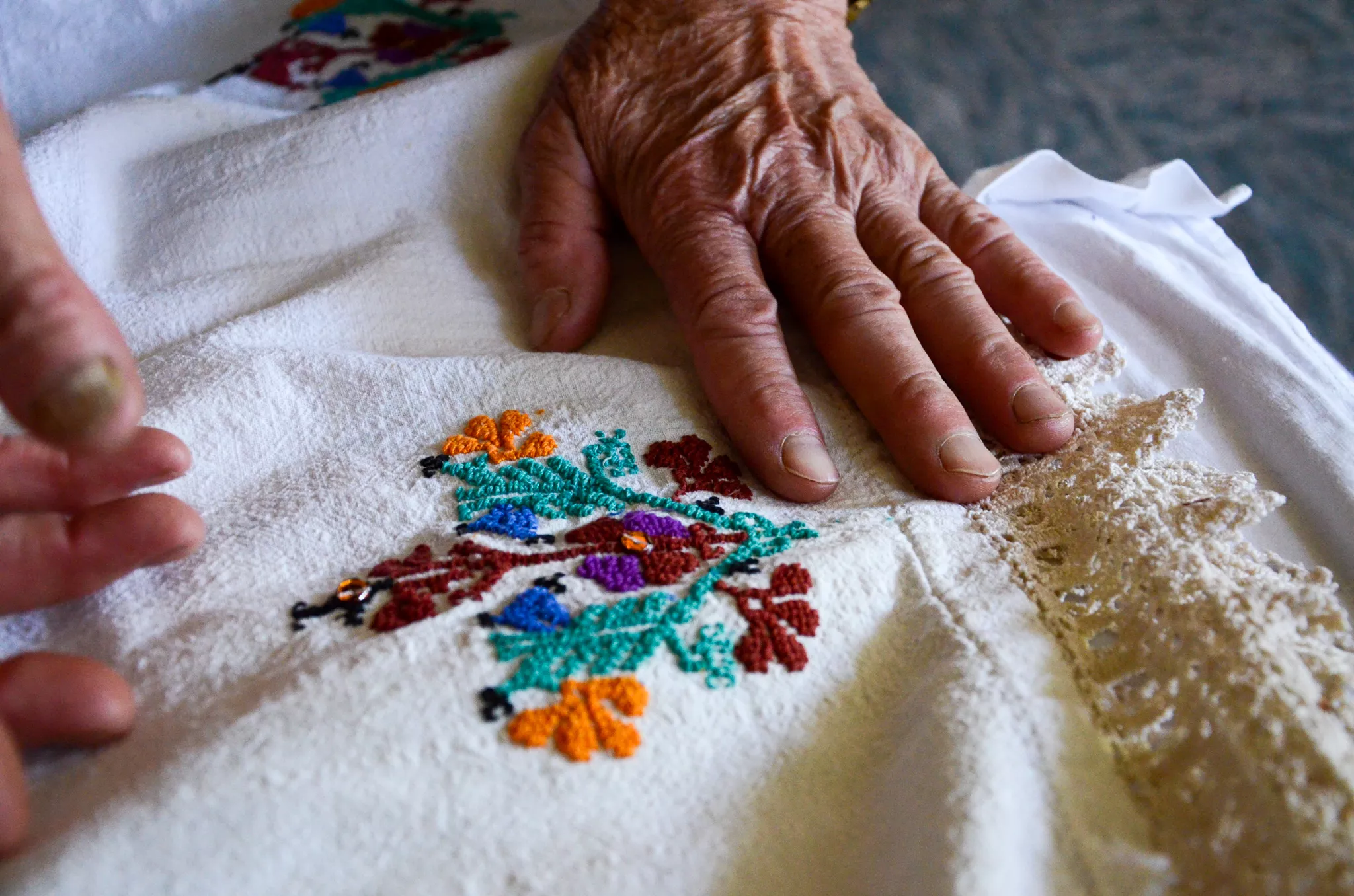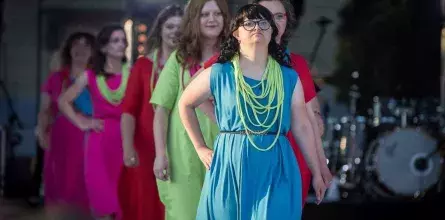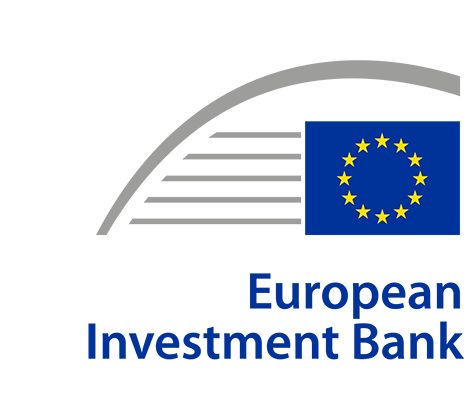The European Social Fund (ESF) powered risk-sharing microfinance facility enabled Yanina Taneva, founder of Ideas Factory, to deliver impactful projects in Bulgaria’s poorest regions. The Sofia-based association is driving community-led social changes in places where they are scarce – across generations, in cities and remote villages, and for individuals and municipal authorities.
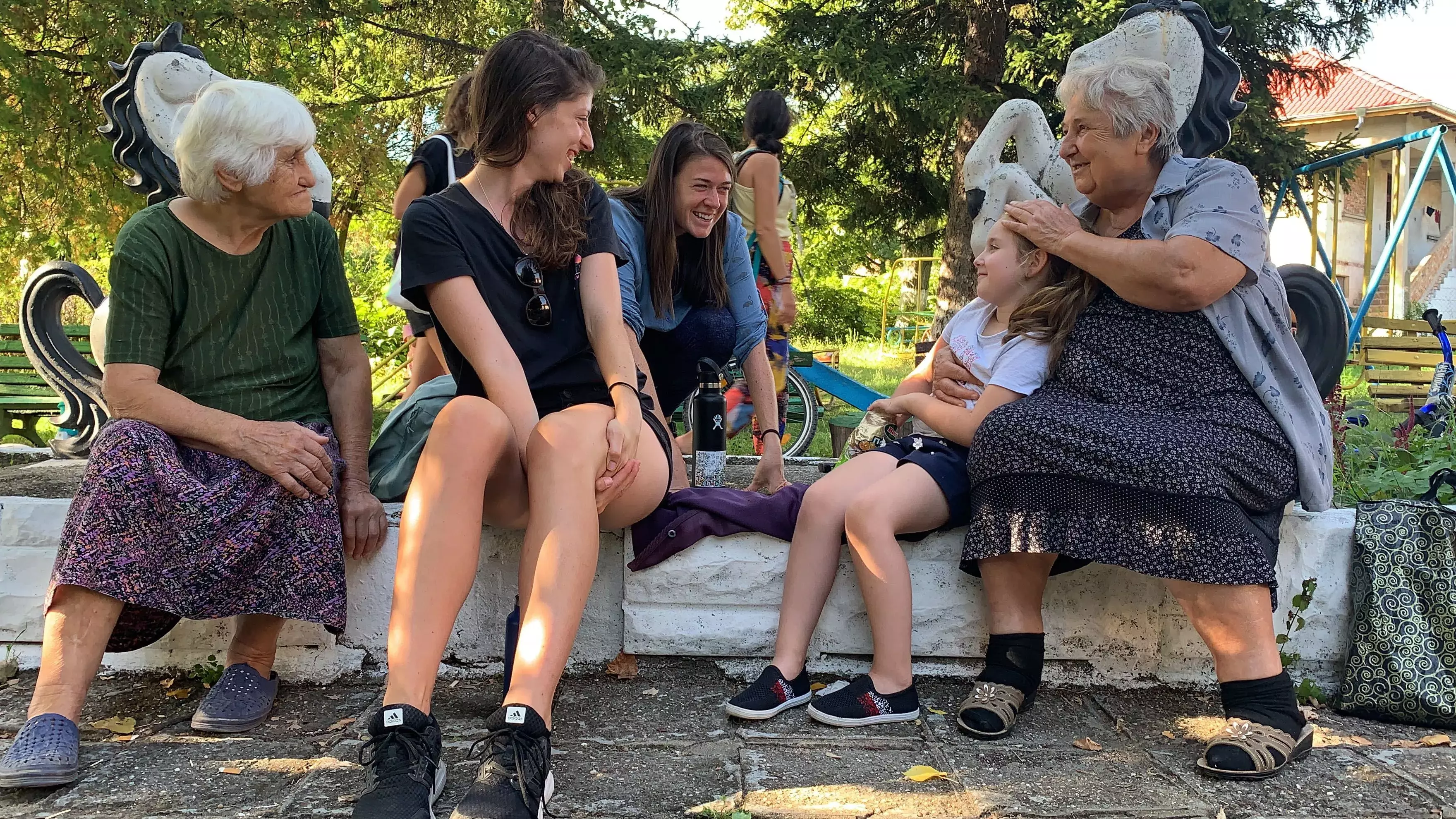
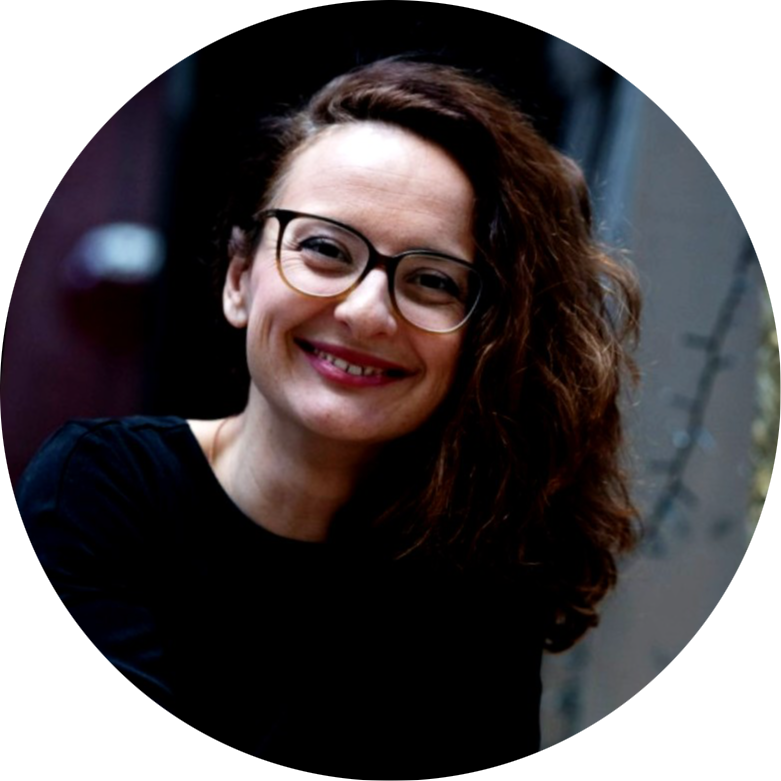
"By building bridges of interaction where they have broken down, we believe that we can create positive alternatives in a world that’s getting radicalised. By replacing fear with familiarisation and exploration, we can create win-win solutions"
says Yanina Taneva, a passionate social enterprise leader who moved from a secure job in communication to the social realm 17 years ago.
Having worked for advertising agencies and national broadcast television for many years, she felt the need to see deficits in society addressed in an organic way, with a human focus. “I simply could not ignore the huge disparities and poverty in my country. We need to feed the real needs of people, as I want to live in a place where public space is safe and everyone can enjoy minimum resources like basic healthcare.”
To play her part, she and a group of friends rolled up their sleeves and created the Ideas Factory association back in 2006. Despite starting with a non-existent budget and no paid employees, her non-governmental organisation (NGO) is now a recognised player in the social sphere that employs four people on full-time, permanent contracts and a team of 30 experts on an honoraria basis.
Incomparable lending conditions
Last year, her association went through financial difficulties. It was equipped with a yearly budget of €200 000 coming in from various sources: two loans from the ESF powered risk-sharing microfinance facility promoted by Fund Manager of Financial Instruments in Bulgaria (FMFIB) and implemented by SIS Credit and Mikrofond, as well as the Norway/Liechtenstein grants, crowdfunding, and returns from its Baba Residence project activities implemented by the social enterprise.
“We heard about the SIS Credit microfinance support by word of mouth. I have to say it really saved us as we were in a critical situation and needed working capital to cover our operational expenses while waiting for project payments,” Yanina says. “They offered us really advantageous and competitive lending conditions compared to other banks. What is more, the approval process was fast, and our long-established existence and reputation was their unique guarantee.”
Yanina’s association received two microloans totalling €50 000 with a maturity of ten years, a one-year grace period and a 2% interest rate.
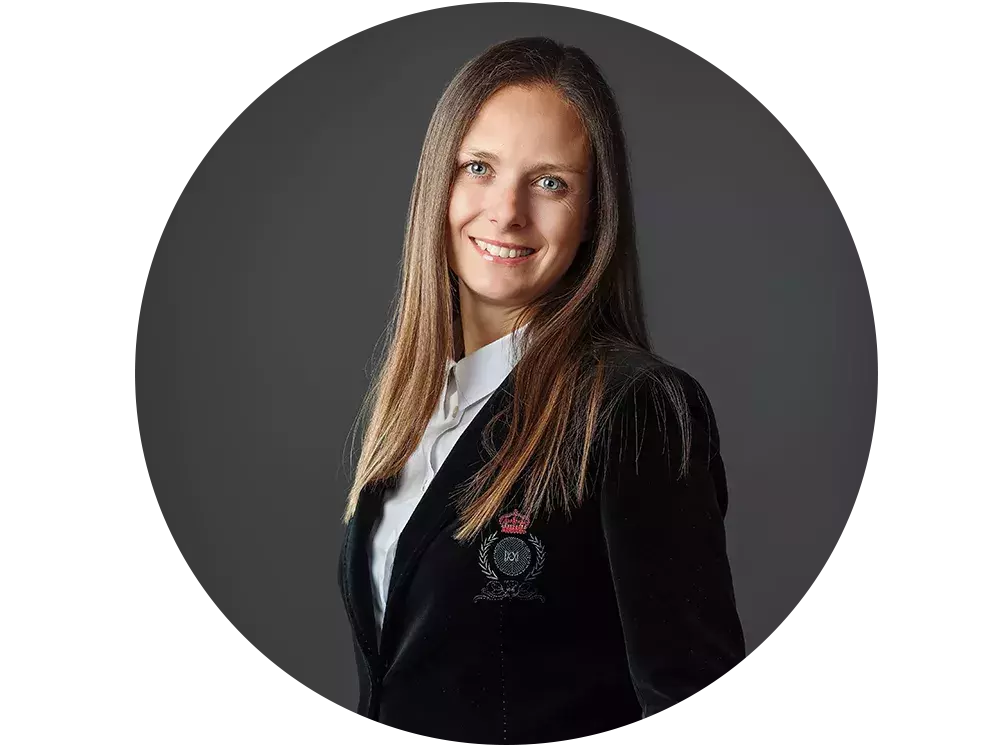
“After having talked to many banks and financial institutions, Yanina Taneva found a reliable partner to talk to and which was able to help at the right moment”, CEO of SIS Credit Martina Grigorova.
I immediately saw her entrepreneurial spirit and her ambition to change step-by-step the status quo for underserved populations in a very innovative way that has potential to be replicated across Europe. Actually, this is the most important thing that we are looking for with the entrepreneurs we support – this sparkle and assertiveness in the success of the project. So, without exaggerations, Yanina’s project received approval in only one day,
says SIS Credit CEO Martina Grigorova
A true exchange of knowledge and care
The Baba Residence project is Ideas Factory’s main local cause. Baba Residence (“baba” means “grandmother” in Bulgarian) is an initiative bringing together urban young people (artists, creatives and researchers) and elderly people in depopulating villages in north-western Bulgaria, which is also one of the poorest regions in the European Union. The initiative arose from a desire to help these remote villages, which are rapidly losing their economic sustainability, cultural heritage and vitality. “Every year at least one of them disappears from the map of Bulgaria. Around 617 villages have less than ten or no inhabitants while most of their them are retirees with a monthly pension of less than €150,” explains Yanina Taneva.
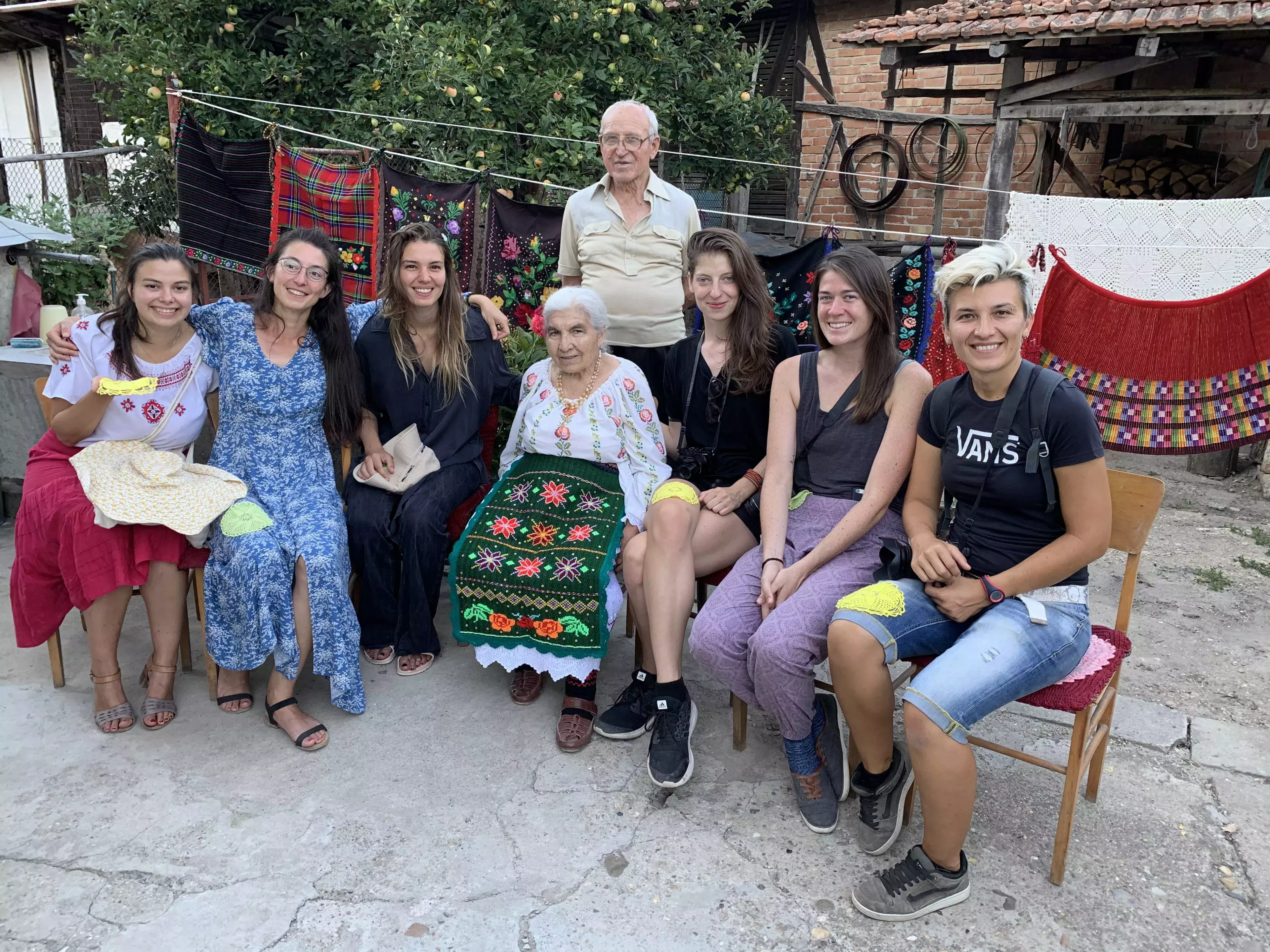
Baba Residence has helped improve the quality of life of many mountain villagers
Candidates who participate in Baba Residence either live in elderly households or take part in two-day volunteer actions (cleaning and newly marking mountain eco-trails, renovating parts of old churches or playgrounds, etc.). They are first trained in design thinking and ethnological research by professionals at Ideas Factory. They then receive funding for travel and living expenses to spend four to six weeks regenerating social, economic and cultural life in a village, learning traditional crafts and collecting stories. Based on their findings, Ideas Factory will develop an innovative idea for a service, product or event that will serve the real needs of this community and attract greater interest in the village. “During the residency, participants live the daily life of the villagers. They must demonstrate a real ability to adapt and above all listen to what elderly people can teach them to cocreate with them,” stresses Yanina.
State pensions increase up to 140%
Since its first edition in 2015, Baba Residence has led to the preservation of invaluable stories, traditions and crafts from the villages. Examples include the launch of a harvest festival, a CD of almost extinct folk songs, an online educational platform that tells the story of traditional beaded and crocheted ornaments, a Google grant that helped fund software training for children and a social enterprise exporting hand-made local products woven by the grandmas from the villages through an online store.
“But one of the most important intangible results of Baba Residence is the new quality of human interaction that we have all together helped create – a solidarity between generations, between urban and rural communities and among the members of communities,” says Yanina.
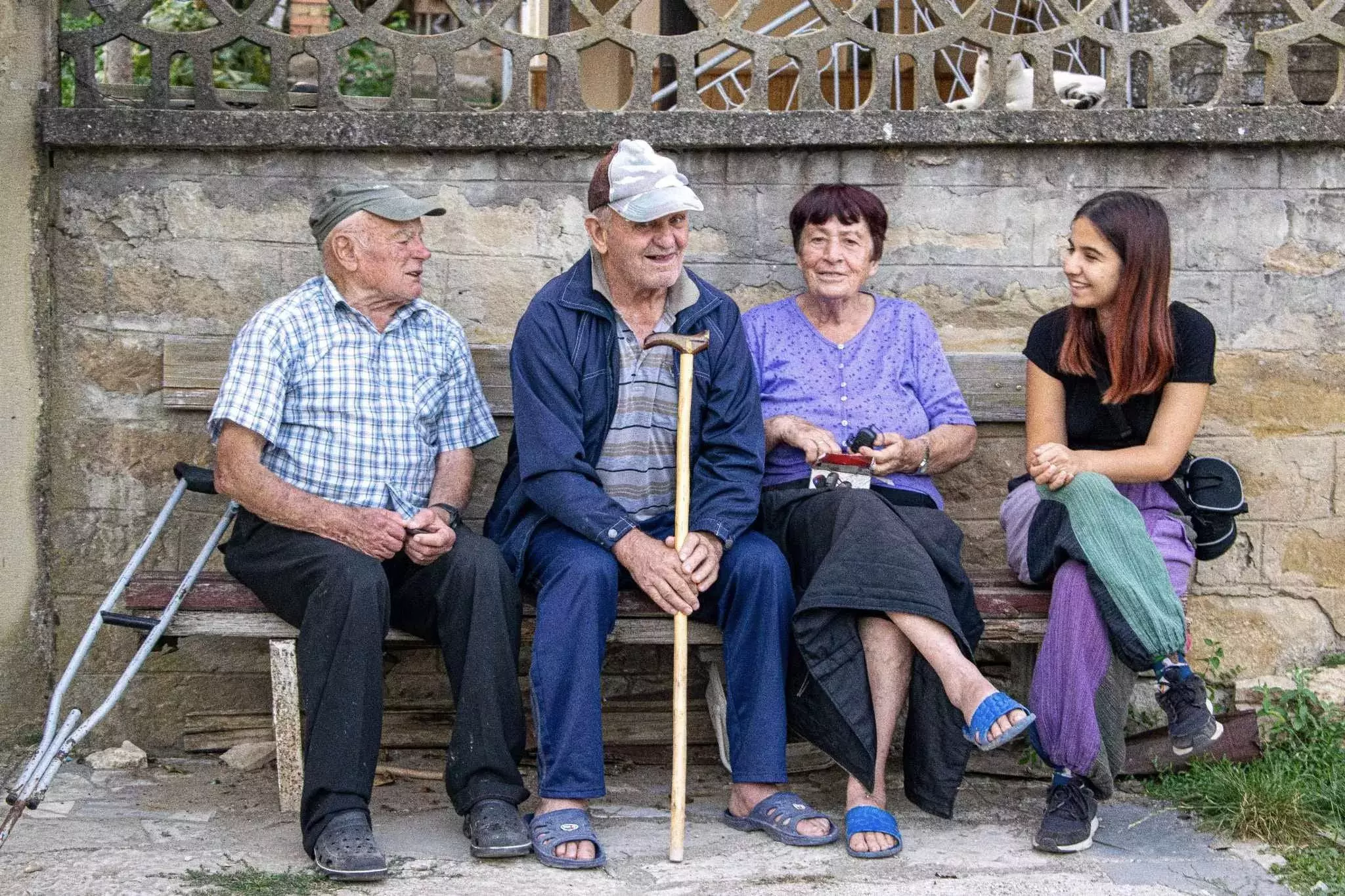
Hand-knitted woollen socks by the grandma’s coop are among the social enterprise’s bestselling products. 40 devoted grandmas knit them in their free time from October to March, when they have no work to do in their gardens. Ideas Factory then sells them to a list of partner companies.
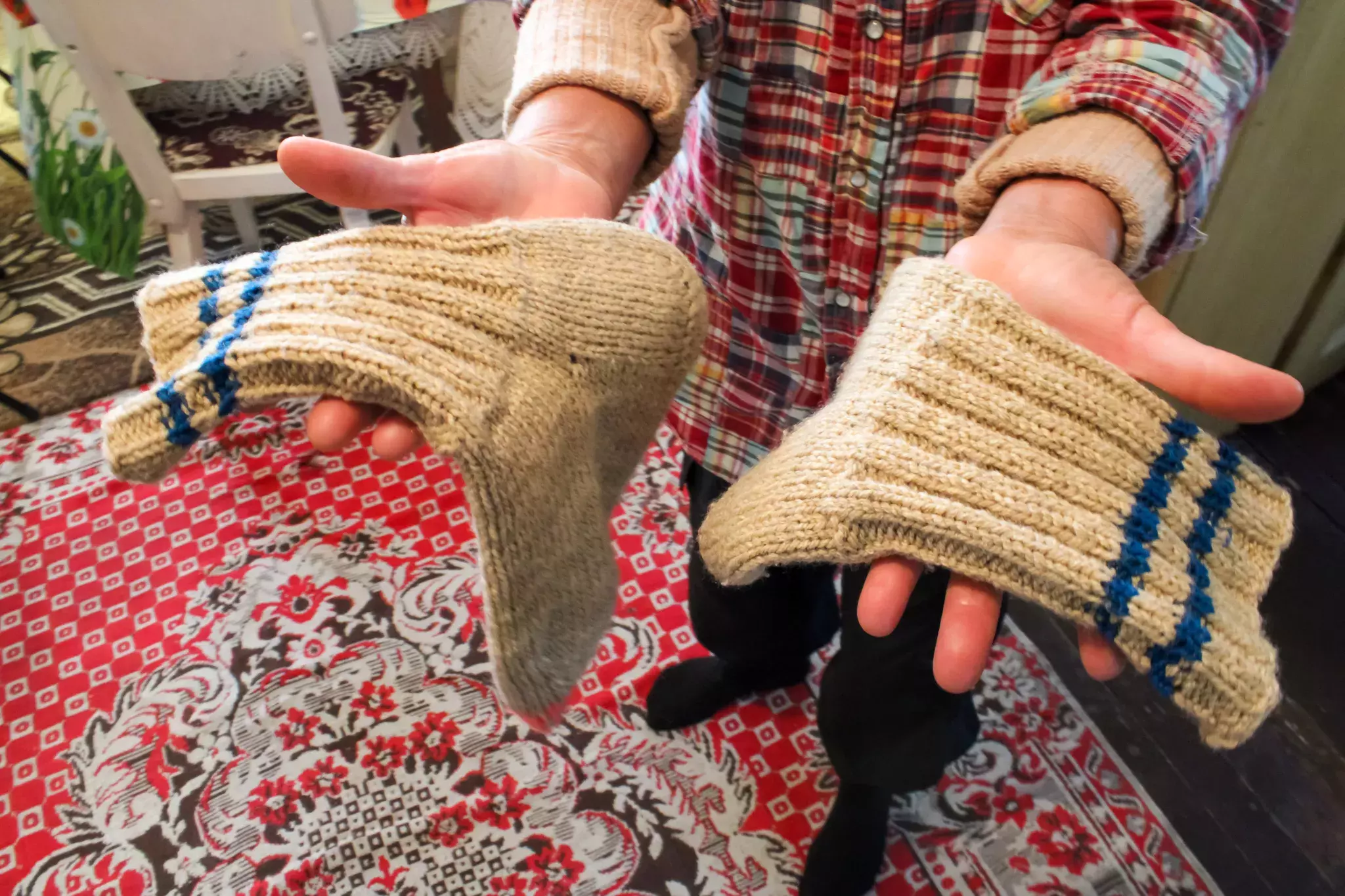

Baba Residence warm and cosy socks made with lots of love, diligence and gratitude. Every pair of socks brings smiles to faces and supports to the Baba Residence and Ideas Factory association.
“There is no push on the quantity that needs to be done and a good distribution between the women. We also market socks via our social media, on a social entrepreneurial platform at national level, in Christmas markets and promotional events,” adds Yanina.
“When monitoring the impact of the project, we found out that grandmothers were able to increase their low pensions by up to 142%, which really improves their lives. Even more important and harder to measure – mental health and satisfaction increased as depression levels decreased.”
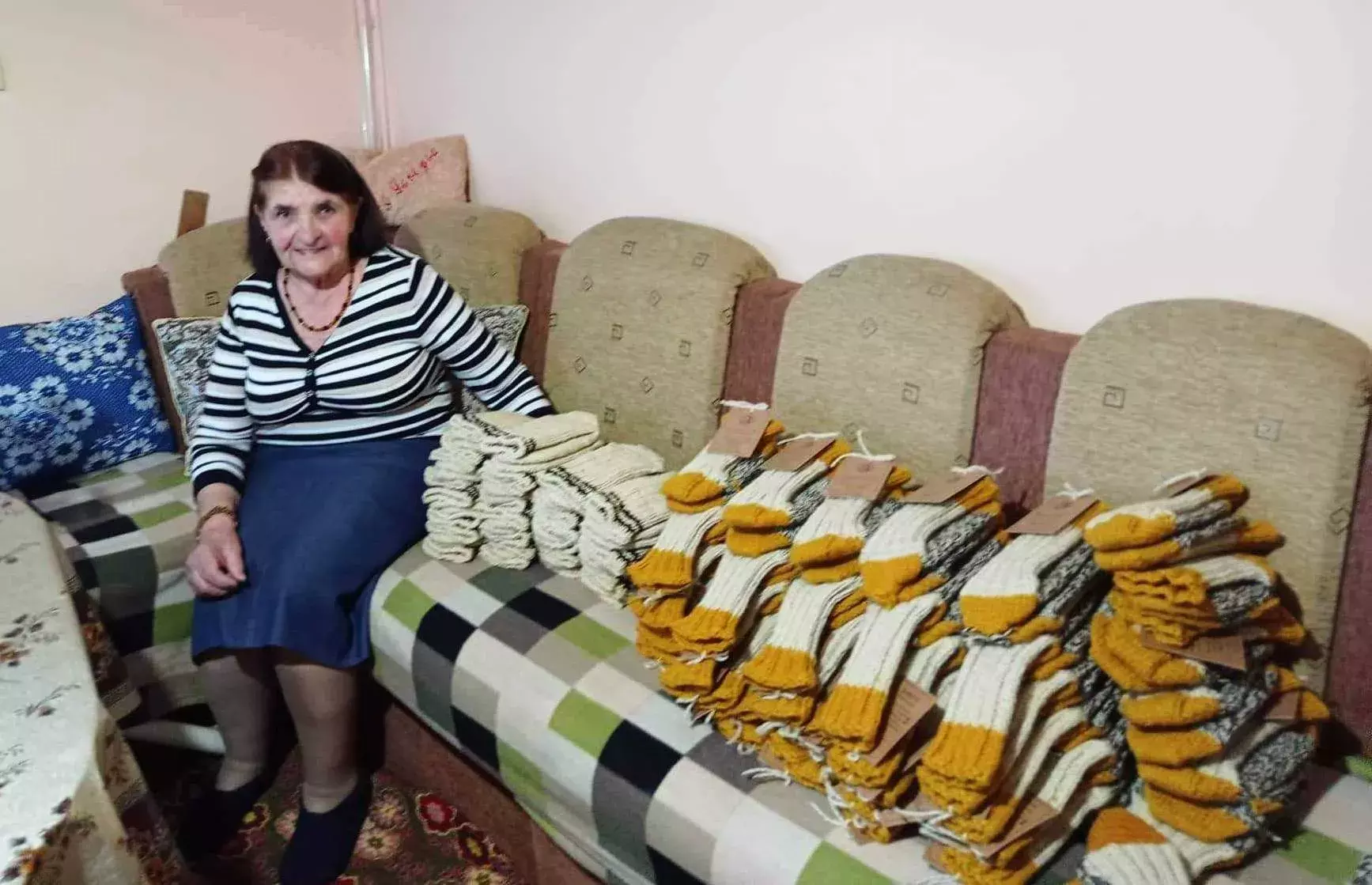
The successful implementation of the Baba Residence initiative was also made possible by a good working relationship with local authorities. “They were very receptive because what we do is what is really needed. We were welcomed and eagerly awaited in all the places we worked. We were even invited to many more places that we cannot really cover,” says Yanina Taneva.
1 500 new jobs
The ESF Risk-sharing microfinance financial instrument was originally identified as suitable for promoting social inclusion and combating poverty in Bulgaria in an assessment carried out in 2014. “Grants cannot finance all the needs of the social economic sector because they usually do not incentivise investments in revenue-generating activities and expansion,” says Executive Director and Board Member of Fund Manager of Financial Instruments in Bulgaria (FMFIB) Viktoriya Hristova. FMFIB selected SIS Credit as financial intermediary for the financial instrument. In addition to lending, customers of the ESF powered risk-sharing microfinance facility can also benefit from free-of-charge consultancy services for business planning for the whole lifetime of the loan.

“Grants should probably remain the basis of the social policy financing, however, we should focus more and more on the increasing role of financial instruments”, Executive Director and Board Member of the Fund Manager of Financial Instruments in Bulgaria (FMFIB) Viktoriya Hristova.
As a result of the collaborative efforts of the managing authority (the Ministry of Labour and Social Policy), FMFIB and selected financial intermediaries such as SIS Credit, the risk-sharing microfinance facility has ensured the multiplication of public resources and attracted a larger number of private investments for achieving EU and national policy goals, including on social policy.
To date, 853 final recipients have been supported under the two ESF financial instruments managed by the FMFIB in its capacity of a holding fund manager (the risk-sharing microfinance facility and the capped portfolio guarantee for microloans), for a total amount of BGN 34 million (around €17.4 million), BGN 21.2 million (around €10.7 million) of which was public money and BGN 12.8 million (around €6.6 million) private financing. Most importantly, the financial instrument has enabled the creation of nearly 1 500 jobs.
The Risk-sharing microfinance facility also played a crucial role in the development of SIS Credit (the second largest microfinance institution in Bulgaria) because it helped the institution better address the needs of the financial instrument target groups – social enterprises and starting entrepreneurs with a focus on vulnerable groups. “There are two reasons for that: first, in most cases these target groups cannot provide collateral to access loans, which is the reason why the risk-sharing element is covering this constraint. Second, they need low-interest rates and tailor-made loans with a long grace period and repayment schedules.
This comes from the core design of the financial instrument and the 0% interest rate of the programme funding, which is up to 85% of each loan and is directly transferred as a benefit to the client,” explains CEO of SIS Credit Martina Grigorova.
Through the Risk-sharing microfinance facility alone, SIS Credit and Mikrofond (which has been wholly owned by SIS Credit since 2022) have supported nearly 400 clients, over 40% of which are from vulnerable groups (young entrepreneurs, people with disabilities and people who have been unemployed for over six months).
So far, 27 social enterprises have received funding. Martina Grigorova sees this as a “great success,” keeping in mind that the operational culture of social enterprises in Bulgaria is based solely on grants. She has also observed a growing number of social enterprises becoming entrepreneurial, preferring to access low-interest loans in the right moment rather than waiting for grant programmes with onerous requirements. “Over 800 jobs have been created by the projects supported. In reality, this number is even higher because for reporting purposes we only count official full-time labour contracts,” she says.
The default ratio on the portfolio is currently under 4%. “However, if a loan cannot be repaid, up to 85% will be covered by public funding and the other part of the loan (the financial institution’s contribution) will be written-off,” she explains. Martina is in regular contact with clients to spot the early warning signs of a potential default.

Martina Grigorova, CEO of SIS Credit has observed a growing number of social enterprises becoming entrepreneurial, preferring to access low-interest loans in the right moment rather than waiting for grant programmes with onerous requirements.

“I would definitely recommend the ESF powered risk-sharing microfinance facility to social enterprises that have been on the market for a long time like us, because their backing is super needed”
Ideas Factory Founder Yanina Taneva.
“Support for Ideas Factory is just one of the inspiring examples of how ESF/ESF+ funds can help to develop a good idea and reach vulnerable groups in Bulgaria. For us, as the managing authority of the Human Resources Development Operational Programme, it is extremely satisfying to find that European funds have been able to help people in need."
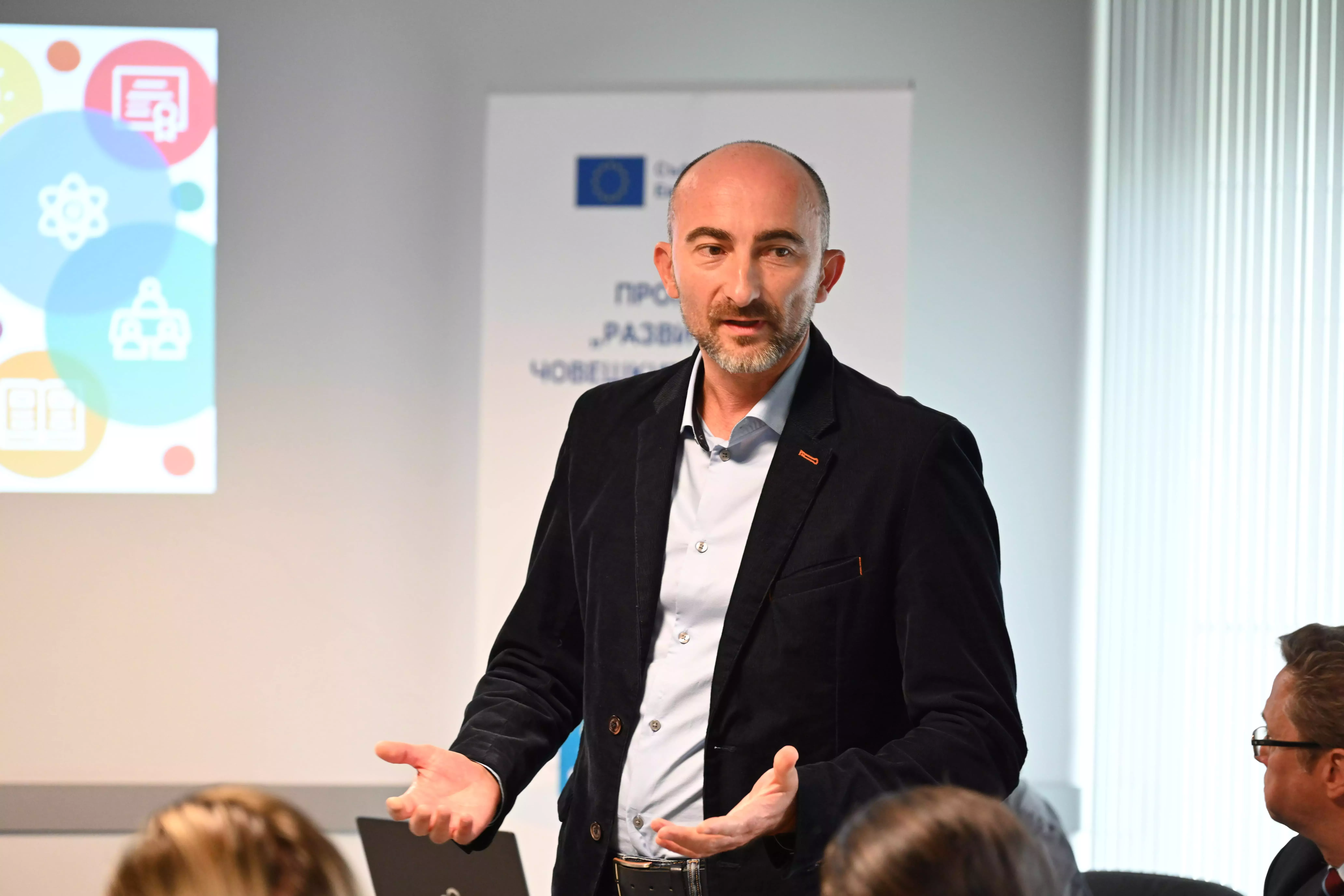
Director General, Head of the Managing Authority of HRDP, Ministry of Labour and Social Policy, Tzvetan Spassov
"Over the past six years, we have provided €11.73 million for 785 microcredits and guarantees for 133 microcredits to start-up companies and enterprises of people from vulnerable groups. I am sure that the microfinance mechanism based on the ESF/ESF+ has the potential to reach many more people with good ideas and entrepreneurial skills.”
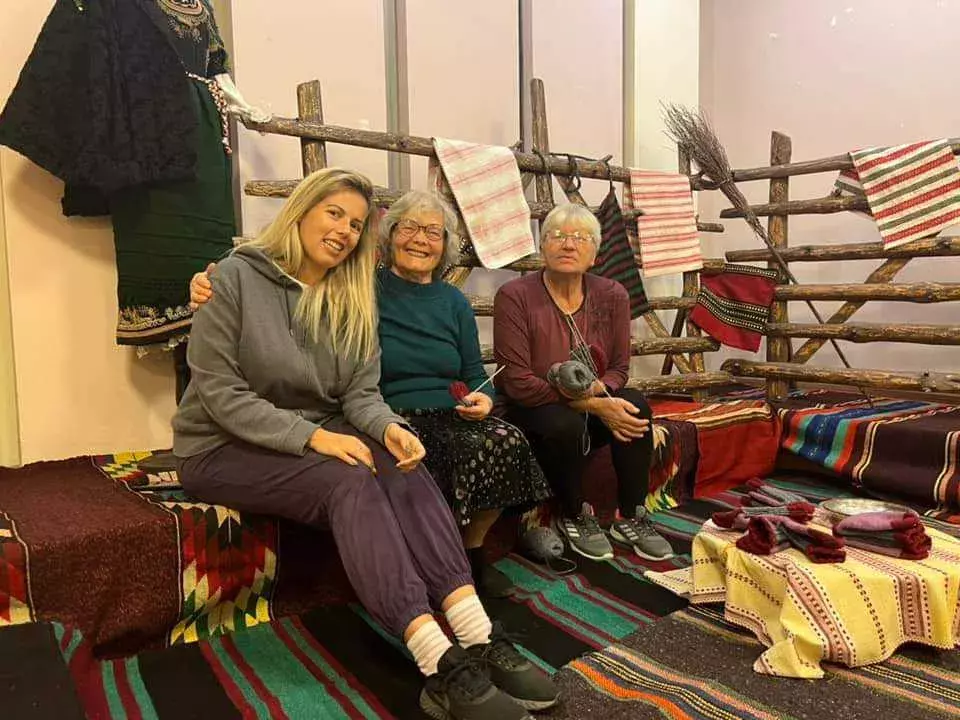
A win-win situation
Next year will mark the tenth anniversary of the Baba Residence initiative. “Our best birthday present is probably the happy faces of the 280 residents who have been contributing to different solutions in 30 remote villages across Bulgaria, and the improved living conditions of the villagers,” says Yanina Taneva.
One of the best parts of this innovative social project is its win-win nature: urban professionals who very often lack a sense of belonging reconnect with a real community while the elderly people living in depopulated villages and who “are not in a position to insist on getting better services” are listened to and supported. “It wasn’t easy, you know, some of our residents had never been to a village. In Bulgaria there is a term for this: going back to the villages,” says Yanina.
“Living in remote villages for a month has allowed our residents to live the traditional culture, and become more sustainable when producing their own food, for example. More than 80% of them say they got more tolerant, more patient. The younger generation also broadens their view of what the future might look like and have a better perspective on what needs to be transferred from the past to the future for a more resilient society where everyone belongs.”
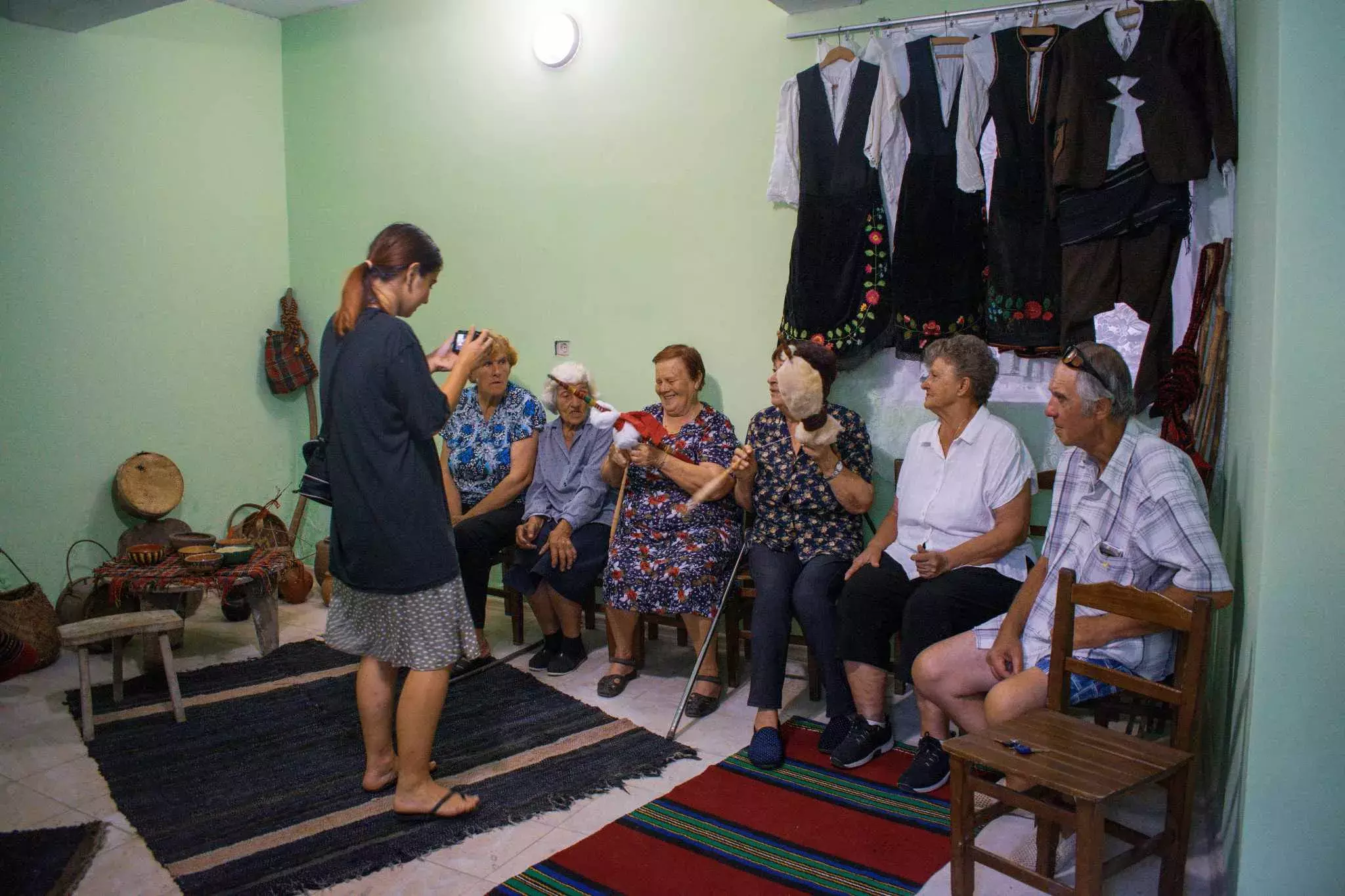
“I believe in the solidarity economy”, Ideas Factory Founder Yanina Taneva.
Main features of the two ESF financial instruments in Bulgaria - risk-sharing microfinance facility and the capped portfolio guarantee for microloans
25K
Risk-sharing microfinance facility
Provides access to financing to the Human Resources Development Operational Programme 2014-2020 (HRD OP) target groups for starting a business, job creation and self-employment
• Preferential sub-market conditions
50K
Capped portfolio guarantee for microloans
Facilitates provision of financing to final recipients by banks and financial institutions
• Low collateral requirements
• Partial risk coverage
Risk-sharing microfinance facility | Capped portfolio guarantee for microloans |
|---|---|
Maturity: Up to ten years | Maturity: Up to ten years |
Grace period: Up to two years (three years during COVID-19) | Grace period: Up to two years (three years during COVID-19) |
Interest-free public money: Up to 90% of each loan | Portfolio cap rate: 25% |
Private co-financing: 10% to 25% of each loan | Guarantee rate: 80% |
Aggregate interest lowered by 75% to 90% compared to market interest rate for same final recipient | - |
Under de minimis aid rules | Under de minimis aid rules |
